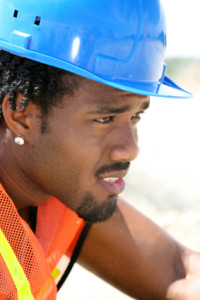 A ceiling partly caved in injuring two construction workers. The construction accident happened at 555 West End Avenue in New York City. The injured victims of this ceiling collapse were working at the former St. Agnes Boys High School. Their current condition is unknown and the cause of the collapse is under investigation.
A ceiling partly caved in injuring two construction workers. The construction accident happened at 555 West End Avenue in New York City. The injured victims of this ceiling collapse were working at the former St. Agnes Boys High School. Their current condition is unknown and the cause of the collapse is under investigation.
There are many reasons why a ceiling may become prone to collapse. Some older buildings that have not been properly maintained tend to be more vulnerable. Other New York buildings have improper building materials, water damage, incorrect ductwork, or termite damage, making them prone to collapse. When a construction crew is asked to work in a potentially dangerous building with ceilings on the brink of collapse, steps must be taken to protect them and make sure the worksite is safe and secure.
Property owners in New York often let their buildings fall into disrepair, and some contractors fail to conduct proper inspections before letting employees go to work. When a ceiling collapses, it must be determined what safety features were utilized and what steps should have been taken to prevent the accident.
Injured workers are usually covered under their employers’ workers’ compensation insurance, which covers all medical expenses and a portion of lost wages. Unfortunately, many injured workers are not given the support to which they are entitled.
If you have been hurt in a construction accident, notify your supervisor right away. Write down the name and number of everyone who witnessed the incident and everything you remember. Then, inform your employer that you need medical attention and ask if your employer’s insurance provider prefers a certain hospital. Keep records of your medical bills and lost wages.
If you are worried that your workers’ compensation claim will be denied, don’t hesitate to seek out legal guidance. Speak with an NYC construction accident attorney who will help ensure that your legal rights and best interests are protected.